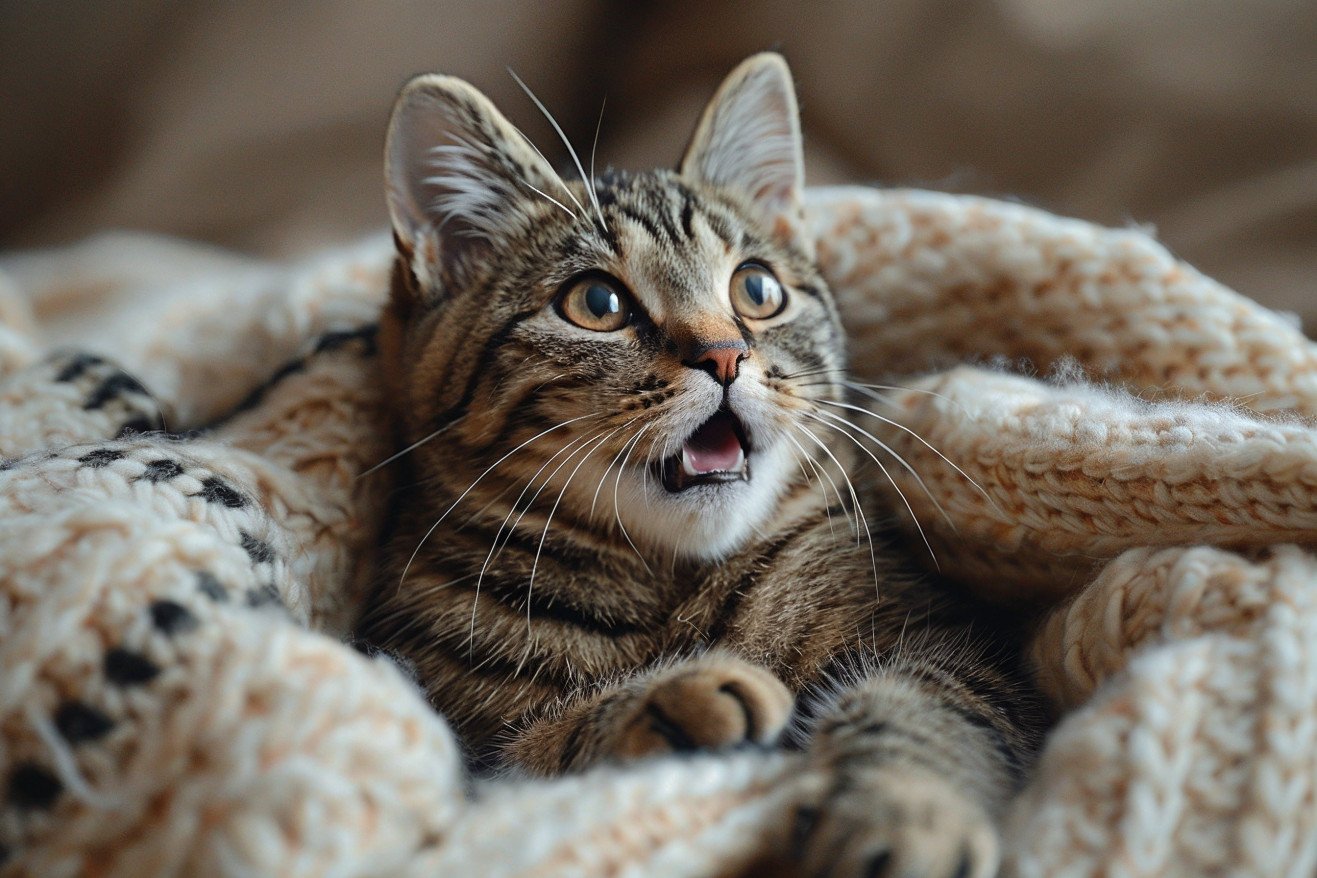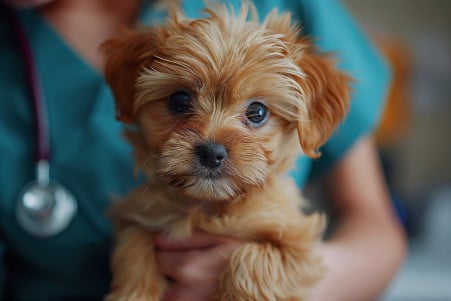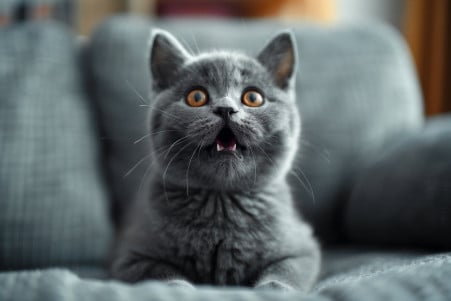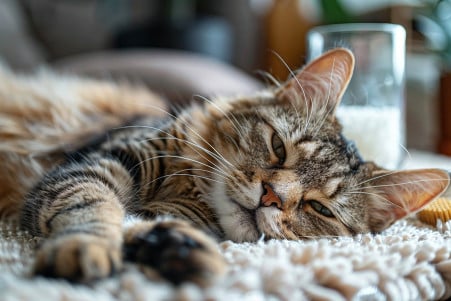Do Cats Get Hiccups? Causes of Cat Hiccups
1 April 2024 • Updated 31 March 2024

Do cats get hiccups like humans, and if so, what causes these strange contractions in our furry friends? Yes, cats can get hiccups, which are defined as involuntary contractions of the diaphragm muscle. In cats, hiccups can be caused by a variety of factors, including eating or drinking too fast, excitement, hairballs, and medical issues like respiratory disease and gastrointestinal problems. Although they are generally nothing to worry about, if your cat has hiccups for an extended period of time, you should see a vet.
To better understand why cats get hiccups, we will look at veterinary studies that have investigated the causes and mechanisms of hiccups in cats. This will help you learn about the science of cat hiccups, as well as potential treatments and ways to prevent them. As a result, you will be better equipped to help your pet if they have this strange condition. We will also discuss why hiccups have evolved in different species to better understand why they happen.
Can cats have hiccups?
What Causes Cat Hiccups?
The most common cause of hiccups in cats is eating or drinking too quickly, which causes the cat to swallow air. This, according to PetMD, irritates the phrenic nerve that runs to the diaphragm, causing it to spasm. Meanwhile, hairballs can also cause hiccups as the cat's throat tries to get rid of the hair, which causes the diaphragm to spasm.
In addition, excitement, stress, or sudden movements can sometimes lead to hiccups in cats. While hiccups are generally nothing to worry about, they can be a sign of an underlying medical issue such as respiratory disease, gastrointestinal issues, or neurological problems. As veterinary experts note, knowing this information can help pet owners decide if their cat's hiccups require a trip to the vet.
By discussing both common harmless causes like overeating and potential medical causes, cat owners can better understand the situation. This way, they can better evaluate their cat's hiccups and take them to the vet if necessary to make sure they're healthy.
Home Remedies and Prevention Strategies
If your cat has the occasional hiccup due to eating too quickly or hairballs, there are some easy home remedies that can help. Canna-Pet suggests feeding your cat smaller, more frequent meals and using puzzle feeders or slow feeders to prevent hiccups from eating too fast. Regular brushing and hairball treatments can also help prevent hiccups from hairballs, according to the Catonsville Cat Clinic.
In addition, creating a calm, stress-free environment and making sure your cat gets plenty of rest can help the hiccups go away faster, says Relievet. That said, if your cat's hiccups last for longer than a day or two, it's a good idea to take them to the vet for an evaluation since chronic or persistent hiccups can be a sign of an underlying health issue.
When to See a Vet About Cat Hiccups
While occasional hiccups are usually nothing to worry about, PetCareRx explains that chronic or persistent hiccups could be a sign of an underlying health problem. The Catonsville Cat Clinic says that if your cat has hiccups that last for more than a day or two, especially if they are a senior cat, you should take them to the vet.
You should also take your cat to the vet if they have frequent or severe episodes of hiccups or if they have other symptoms like lethargy or a lack of appetite, according to JustFoodForDogs. Chronic hiccups could be caused by a number of medical issues including respiratory problems like asthma, gastrointestinal problems, tumors, or neurological issues. A vet can run tests to determine if there is a medical cause for your cat's hiccups and recommend treatment if necessary.
Kitten Hiccups: Why It Happens
Kittens are more likely to get hiccups than adult cats because of their developing nervous systems and immature phrenic nerves, according to Patton Vet Hospital. While kitten hiccups are generally normal and nothing to worry about if they happen infrequently and don't last long, Catster points out that if kittens have prolonged or severe hiccup episodes, it could be a sign of an underlying health problem and they should be seen by a vet.
To avoid kitten hiccups, the Litter-Robot Blog suggests using shallow bowls and feeding smaller, more frequent meals. It's also important to make sure kittens aren't in any pain or discomfort when they have hiccups. Knowing that kittens are more likely to get hiccups than adult cats, cat parents can be prepared to help their young pets when they have this common problem.
Hiccups From an Evolutionary Perspective and in Other Species
Hiccups are a reflex that many other mammals, including cats and dogs, experience. According to PetMD, the hiccup reflex likely evolved as a way to protect animals from choking or aspirating while eating. While the physiological reasons for hiccups are the same in all species, the sounds and patterns of hiccups can differ.
Interestingly, birds, reptiles, and most amphibians don’t experience hiccups because of differences in their respiratory systems, according to Patton Vet Hospital. Knowing this can help us understand why hiccups happen and what they mean in other animals. It also helps us understand why hiccups are normal in cats and kittens. This knowledge can help us understand why hiccups are normal in cats and kittens.
Conclusion: What to Know and How to Help Cats With Hiccups
Hiccups are a normal part of life for cats of all ages, but they are most common in kittens. While hiccups that happen occasionally and go away quickly are usually nothing to worry about, chronic or persistent hiccups may be a sign of a more serious health issue. Cat owners should know the potential causes of hiccups and what they can do to help prevent them, such as changing feeding and grooming habits.
If hiccups don’t go away or are accompanied by other symptoms, cat owners should take their pets to the vet to make sure they get the right diagnosis and treatment. By learning more about hiccups in cats, cat owners can make sure they give their pets the care and help they need.


